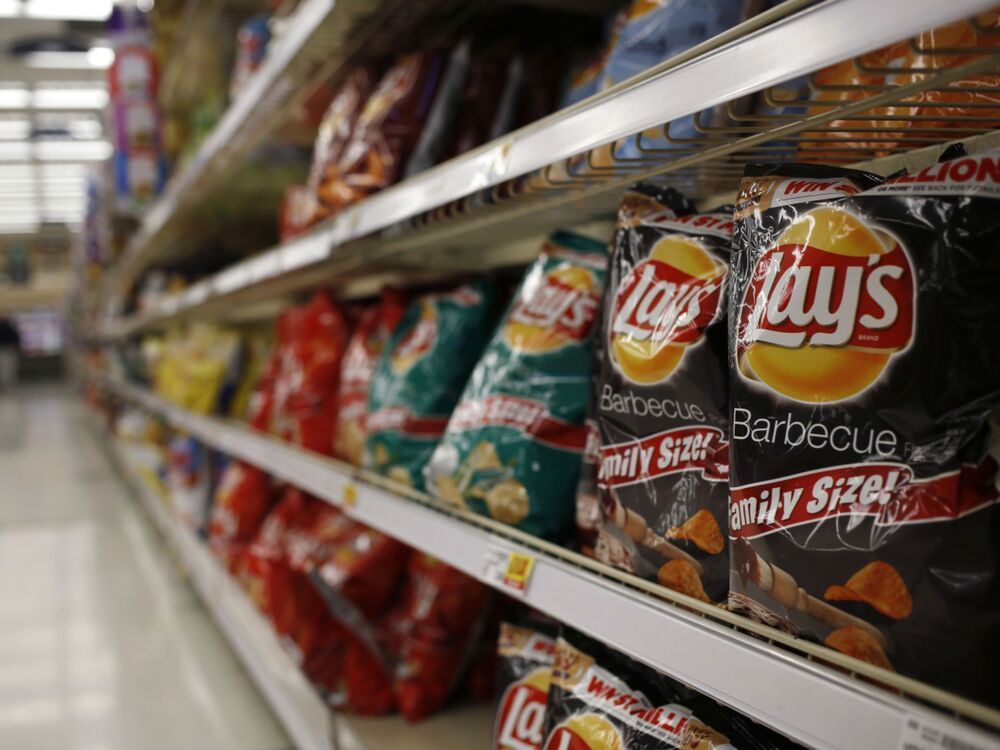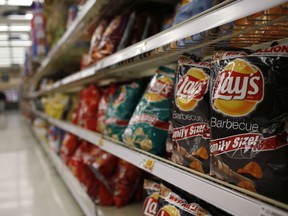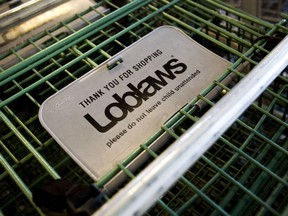Frito-Lay vs. Loblaw fight underscores importance of grocery code of conduct negotiations, leaders say

One expert said a code could help avoid refusals to ship by laying out better processes around dispute resolution

Article content
The national potato chip dispute between two giants of the food business underscores the need to fix the dysfunctional relationship between Canada’s big grocers and their suppliers, leaders in the sector said.
Advertisement
Story continues below
This advertisement has not loaded yet, but your article continues below.
Article content
PepsiCo Inc.’s Frito-Lay subsidiary — the global snack empire that owns Doritos, Lays, Tostitos and Cheetos, among others — has been refusing to ship its products to Canada’s largest grocery chain, Loblaw Cos. Ltd., for more than a week because Loblaw wouldn’t accept higher prices.
Quebec Agriculture Minister André Lamontagne, one of the top politicians leading a push for reform in grocery, said on Feb. 23 that the fracas is more proof that the business needs to change. Last year, Lamontagne and federal Agriculture Minister Marie-Claude Bibeau urged the industry to form a committee to come up with a set of rules to “improve fair dealing” between grocers and their suppliers. If the industry couldn’t come to a consensus, Lamontagne warned, the government would step in.
Advertisement
Story continues below
This advertisement has not loaded yet, but your article continues below.
Article content
For months, a committee of 10 industry leaders has been meeting quietly to develop a proposal for a code of conduct, expected to be presented to government by the end of March.
“This is a reminder of the importance of the work being accomplished regarding a code of conduct,” Lamontagne’s office said this week when asked to respond to the standoff between Loblaw and Frito-Lay.
Michael Graydon, head of the manufacturing lobby group Food, Health and Consumer Products of Canada (FHCP), described Frito-Lay’s refusal to ship products as an act of desperation as production costs continue to rise. Even before the pandemic, suppliers in Canada complained of a power imbalance, since a handful of grocery chains control the vast majority of sales in the country, leaving suppliers little choice but to accept what they believe are often unfair fees and fines to get their products on shelves.
Advertisement
Story continues below
This advertisement has not loaded yet, but your article continues below.
Article content
The supply chain chaos caused by the pandemic has heaped more pressure on those relationships. As suppliers’ labour and ingredient costs increased in recent months, they tried to get retailers to pay more for their products to recoup the extra costs. But retailers, who set prices in store, say they’ve been flooded with requests from suppliers and have been forced to push back in order to provide value to customers.

That pushback is what caused relationships to fray. The most public example of that breakdown is the Frito-Lay episode with Loblaw. It’s not the only example, Graydon said, though he declined to name other manufacturers that have refused to ship to retailers in Canada.
“It’s become commonplace because it’s the only solution in regards to getting fairer treatment,” Graydon said. “Hopefully what a code would do is cut it off at the pass so these kind of tactics wouldn’t even need to be employed.”
Advertisement
Story continues below
This advertisement has not loaded yet, but your article continues below.
Article content
A lot still depends on how Canada’s code is drafted, but Graydon said it could help avoid refusals to ship by laying out better processes for “evaluation and adjudication against these particular issues.”
But judging from examples abroad, a code can only do so much.
Manufacturing advocates in Canada have aspired to import a version of the United Kingdom’s Groceries Supply Code of Practice, which established an adjudicator to enforce rules and rein in the country’s heavily consolidated grocery sector. Last month, U.K. Groceries Code Adjudicator Mark White released a list of seven “golden rules” to help suppliers and retailers navigate through price increase requests. White, however, also noted that price increases are a commercial matter, “not a code issue.”
Advertisement
Story continues below
This advertisement has not loaded yet, but your article continues below.
Article content
Former U.K. adjudicator Christine Tacon, who has consulted for FHCP in its recent advocacy for new rules, said on Feb. 23 that the U.K. code was “very careful” not to get involved in price increases, because regulators want price competition in the market.
In Canada, the group of 10 trade associations drafting a code of conduct has agreed that the industry needs a formal dispute resolution process, along with mandatory and enforceable rules that “promote fair and ethical dealings in commercial transactions,” according to a copy of the committee’s December update to the agriculture ministers.
-

Potato chip giant Frito-Lay cuts off Loblaw in dispute over price hikes
-

Mark Taylor: Canada’s food industry must take important lessons from the U.K.
-

Talks on grocery code to extend into new year, but legislators say it’s progress
-

Empire eyes year-end for a grocery code of conduct, but others are skeptical
Advertisement
Story continues below
This advertisement has not loaded yet, but your article continues below.
Article content
The committee — which includes representatives from retail, manufacturing and agriculture — said the code will also give players in the industry “contractual certainty,” and “address the disparity in negotiating power between small, mid-sized and large entities.”
Retail Council of Canada CEO Diane Brisebois said a code of conduct won’t impact individual negotiations between parties, such as Frito-Lay and Loblaw. “(The code) does not deal with price,” said Brisebois, who is a member of the industry committee. “What it does is it ensures that all parties know what the rules of the game are.”
Those new rules won’t force players into accepting a certain price for products, she said, but it could improve transparency in negotiations by laying out “guidelines about the kind of information both parties need” to make an informed decision about a deal.
“Frito-Lay-Loblaw makes great headlines, but those disagreements have happened with lots of companies in the past,” Brisebois said. “It’s just, right now, it’s a heated subject because of food inflation and because of conversations around the code.”
• Email: [email protected] | Twitter: jakeedmiston
Advertisement
Story continues below
This advertisement has not loaded yet, but your article continues below.









